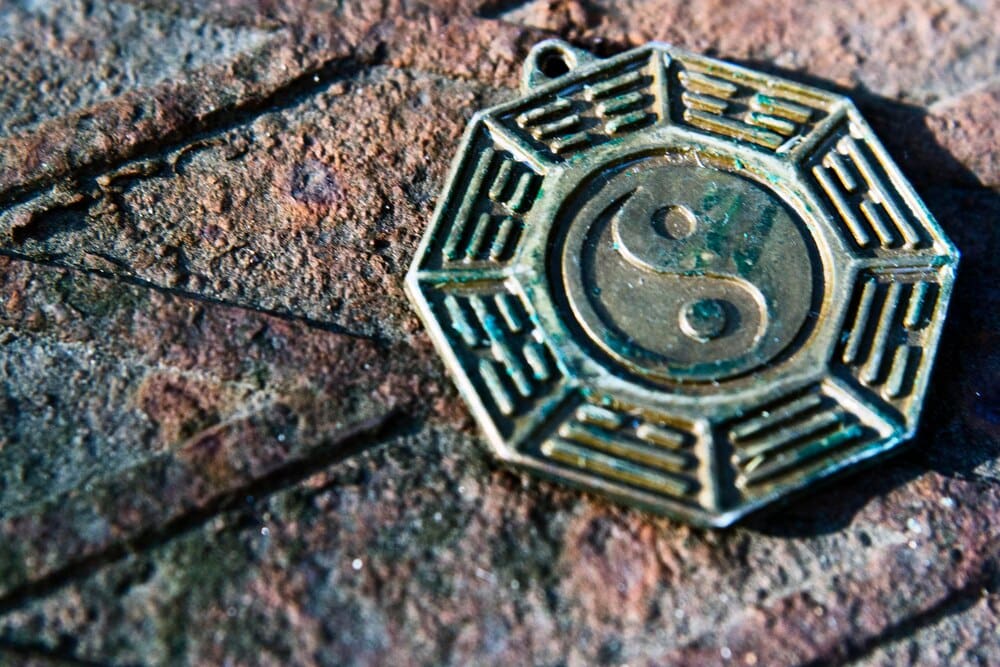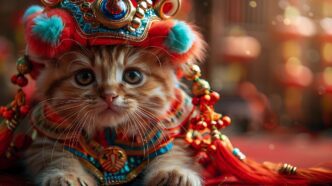While most people are familiar with the 12 animal signs of the Chinese Zodiac, a deeper and more influential layer of this ancient system often goes overlooked: the Five Elements. Known in Chinese philosophy as Wu Xing (五行), the elements of Wood, Fire, Earth, Metal, and Water are not static substances but dynamic forces that shape our personalities, destinies, and interactions with the world. Determined by the final digit of your birth year, your element works in concert with your animal sign to create a unique and highly specific astrological profile, explaining why not all Tigers are alike and offering a richer roadmap for personal understanding and navigating life’s challenges and opportunities.
What Are the Five Elements?
The concept of the Five Elements, or Five Phases, is a cornerstone of Chinese thought, influencing everything from medicine and martial arts to philosophy and astrology. Unlike the four classical elements of Western tradition, Wu Xing describes a system of cyclical change and interaction. These elements are seen as constantly transforming and influencing one another.
This system provides a framework for understanding all natural phenomena as a series of interconnected processes. Each element is associated with specific seasons, directions, colors, planets, and even personality traits. In the context of the Chinese Zodiac, your element reveals the fundamental energy that tempers and directs the characteristics of your animal sign.
To truly grasp the power of the elements, one must understand the two primary cycles that govern their relationships: the Generating Cycle, which describes creation and support, and the Overcoming Cycle, which outlines control and opposition. These cycles are the key to understanding elemental compatibility and conflict.
The Two Fundamental Cycles of Interaction
The interplay between the Five Elements is what gives the system its dynamic quality. These interactions are not simply “good” or “bad” but represent the natural ebb and flow of energy required for balance in the universe and within ourselves.
The Generating Cycle (Sheng Cycle – 生)
The Generating Cycle is a relationship of harmony, nourishment, and creation, much like a mother nurturing a child. Each element in this sequence gives birth to the next, creating a flow of supportive energy. Understanding this cycle helps identify relationships and situations that are naturally harmonious and productive.
The sequence is as follows:
- Wood feeds Fire.
- Fire creates Earth (from its ash).
- Earth bears Metal (mined from the ground).
- Metal carries Water (through condensation).
- Water nourishes Wood (helping it grow).
Individuals whose elements are next to each other in this cycle often experience easy compatibility, mutual support, and effortless communication.
The Overcoming Cycle (Ke Cycle – 克)
The Overcoming Cycle, also known as the Controlling or Destructive Cycle, represents a system of checks and balances. Each element in this sequence can control or suppress another, preventing any single force from becoming too dominant. While this can manifest as conflict or struggle, it is also a necessary cycle for maintaining equilibrium.
This sequence works as follows:
- Wood parts Earth (roots breaking through soil).
- Earth dams Water (containing its flow).
- Water extinguishes Fire.
- Fire melts Metal.
- Metal chops Wood.
Relationships between people with overcoming elements can be challenging and dynamic, requiring more effort and compromise. However, they can also lead to significant growth by pushing individuals to overcome obstacles.
How to Find Your Element
Determining your element is remarkably straightforward. It is based on the last digit of your birth year in the Gregorian calendar. The elements cycle in pairs, with each element ruling for two consecutive years—one Yang and one Yin.
Use this simple guide to find your element:
- If your birth year ends in 0, you are Yang Metal.
- If your birth year ends in 1, you are Yin Metal.
- If your birth year ends in 2, you are Yang Water.
- If your birth year ends in 3, you are Yin Water.
- If your birth year ends in 4, you are Yang Wood.
- If your birth year ends in 5, you are Yin Wood.
- If your birth year ends in 6, you are Yang Fire.
- If your birth year ends in 7, you are Yin Fire.
- If your birth year ends in 8, you are Yang Earth.
- If your birth year ends in 9, you are Yin Earth.
One crucial detail is the Chinese New Year. The zodiac year does not begin on January 1st; it starts on the Lunar New Year, which typically falls between late January and mid-February. If you were born during this period, you must check the specific date of the Chinese New Year for your birth year to confirm if you belong to that year’s sign and element or the previous one.
The Five Elements in Detail: Traits and Personalities
Each element bestows a distinct set of characteristics, motivations, and life approaches. When combined with your animal sign, these traits create a finely detailed portrait of your inner nature.
The Wood Element (木)
Wood is the element of growth, renewal, and creativity. People born under the Wood element are driven by expansion and progress. They are often compassionate, sociable, and generous, with a strong sense of community and justice. Like a tree, they are rooted but always reaching upward and outward.
Their strengths lie in their ability to collaborate, their open-mindedness, and their unwavering optimism. However, their desire to grow can sometimes lead them to take on too much, resulting in burnout or impatience. Wood individuals thrive in environments that support their creativity and social nature, such as the arts, education, or humanitarian work.
The Fire Element (火)
Fire represents passion, energy, and transformation. Those with the Fire element are natural leaders, brimming with charisma, dynamism, and a desire for adventure. They are decisive, spontaneous, and possess an infectious enthusiasm that can inspire others to action.
Their greatest assets are their confidence and their ability to light up a room. The downside is that their intense energy can sometimes manifest as impatience, aggression, or a short temper if not managed. Fire people excel in roles where they can lead, innovate, and express their competitive spirit, such as entrepreneurship, performance, or sales.
The Earth Element (土)
Earth is the element of stability, patience, and practicality. Earth individuals are the bedrock of the zodiac—grounded, reliable, and responsible. They are natural planners and organizers who value security, logic, and tradition. Their approach to life is methodical and steady.
Their nurturing and dependable nature makes them incredible friends and colleagues. Their main challenge is a tendency towards stubbornness or becoming too set in their ways, which can stifle innovation. Earth types are well-suited for careers that require diligence and trustworthiness, such as administration, construction, real estate, or finance.
The Metal Element (金)
Metal embodies structure, discipline, and resolve. People born under the Metal element are ambitious, organized, and self-reliant. They possess a strong will and a clear sense of right and wrong. Like refined metal, they are strong, resilient, and value order and clarity.
Their determination and focus are key to their success. However, this same rigidity can make them appear aloof, judgmental, or overly critical of themselves and others. Metal individuals find fulfillment in careers that reward precision and strength, such as law, engineering, finance, and military leadership.
The Water Element (水)
Water is the element of fluidity, communication, and wisdom. Water individuals are adaptable, intuitive, and highly perceptive. They can navigate complex social and emotional situations with ease, often relying on their deep insight and persuasive skills. They are reflective and often possess a strong artistic or philosophical bent.
Their flexibility is their superpower, allowing them to overcome obstacles by flowing around them. This can, however, lead to indecisiveness or a tendency to be emotionally swayed. Water people shine in fields that require diplomacy, intuition, and communication, such as counseling, writing, diplomacy, and the arts.
Combining Your Animal and Element: The 60-Year Cycle
The true magic of Chinese astrology is revealed when you combine your animal sign with your element. The 12 animal signs cycling through the 5 elements create a master cycle of 60 unique sign-element combinations (12 animals x 5 elements = 60). This is why the 60th birthday is a particularly significant milestone in Chinese culture, as it marks the completion of one full cycle and the beginning of a new one.
This 60-year calendar explains the vast personality differences among people born under the same animal sign. For example, a Fire Monkey (born 1956, 2016) is highly energetic, competitive, and dominant. In contrast, a Water Monkey (born 1932, 1992) is more sensitive, clever, and adaptable, using charm rather than force to achieve its goals.
Similarly, a Wood Dog (1934, 1994) is more sociable, generous, and cooperative than other Dogs. A Metal Dog (1970, 2030), on the other hand, is more serious, disciplined, and unwavering in its principles. Your element fine-tunes the broad strokes of your animal sign, providing a far more accurate and personalized reading.
Using the Elements for Deeper Understanding
This elemental knowledge is not just for self-reflection; it is a practical tool for daily life. By understanding the Generating and Overcoming cycles, you can gain insight into your relationships. If your element generates your partner’s (e.g., Wood and Fire), your relationship may feel naturally supportive. If your elements are in an overcoming pattern (e.g., Water and Fire), you may face more friction, but also have the opportunity for dynamic growth.
This framework can also guide career choices, helping you identify professions that align with your core elemental energy. A Fire person might feel stifled in a highly structured, solitary job, while an Earth person would thrive. Understanding these dynamics allows you to create a life that is more in sync with your fundamental nature, leading to greater harmony and success.
Ultimately, the Five Elements transform the Chinese Zodiac from a simple set of 12 animal archetypes into a sophisticated and deeply personalized system of wisdom. By looking beyond your animal and embracing your elemental sign, you unlock a powerful key to understanding your core motivations, your innate strengths, and your unique path in the world. It is a timeless guide to living a more balanced and auspicious life.








